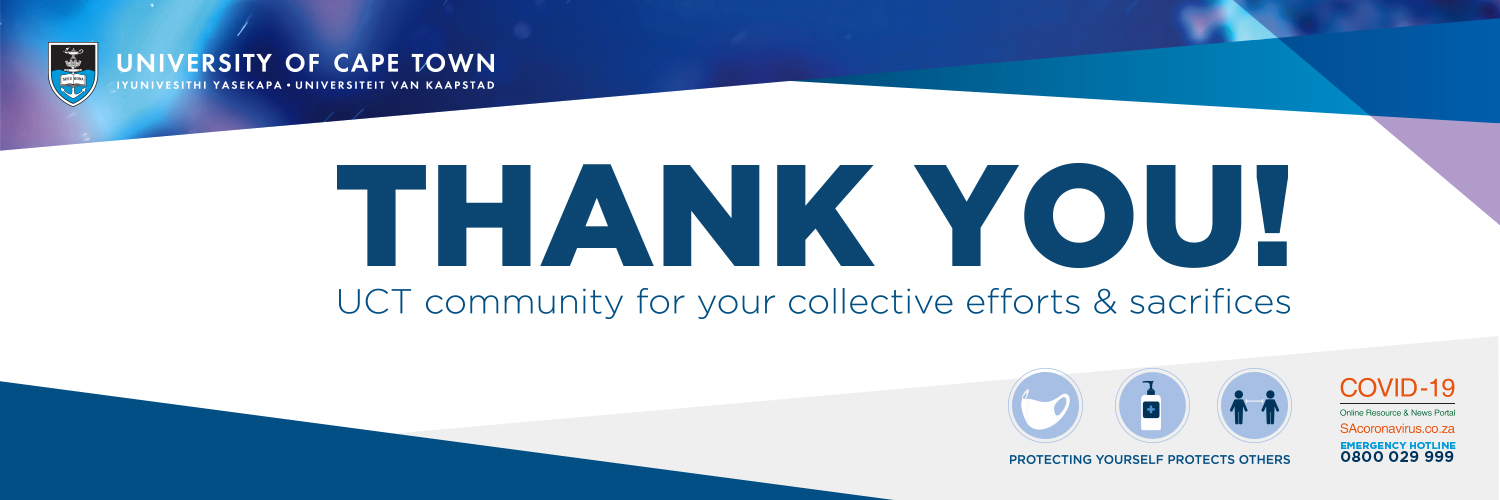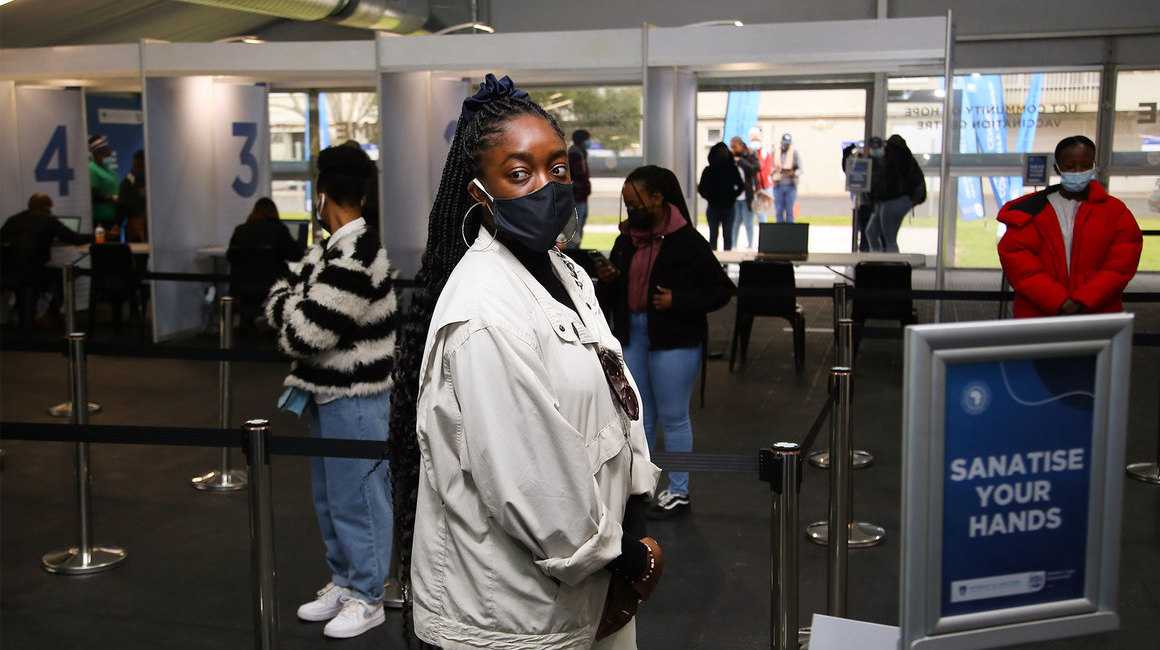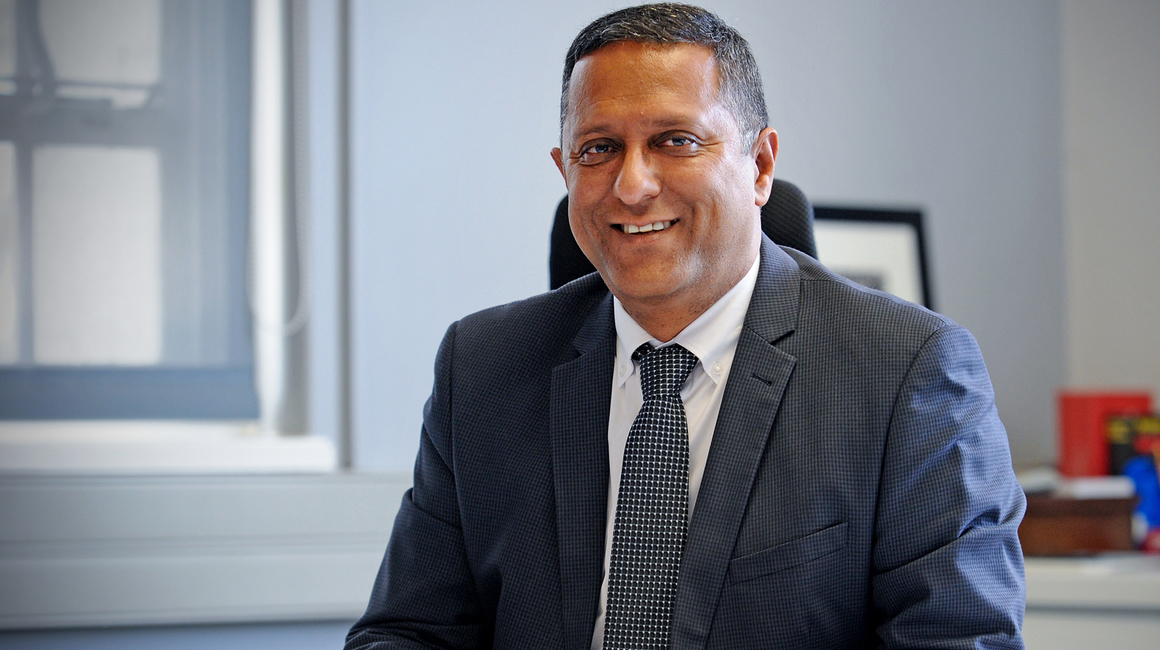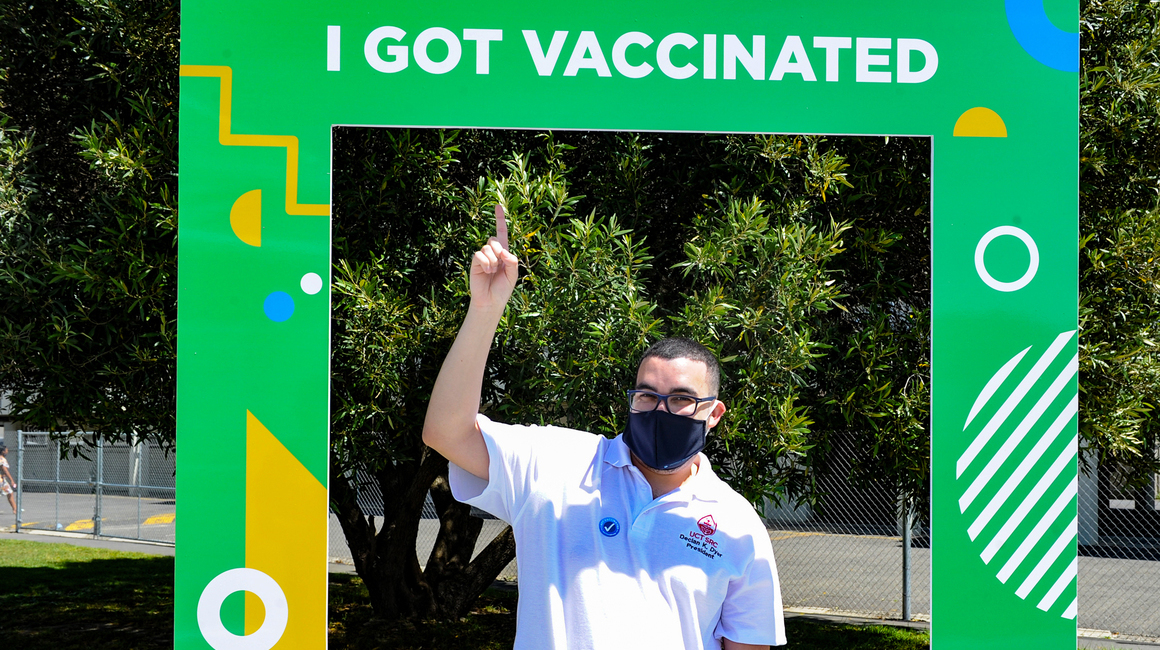COVID-19 and local elections: There are no good choices
30 June 2021 | Story Pierre de Vos. Photo UCT News. Read time >10 min.
Professor Pierre de Vos, the head of the University of Cape Town's (UCT) Department of Public Law, considers the calls for the postponement of the upcoming local elections and the implications should the postponement occur.
Calls for local government elections to be postponed because of Covid-19 are understandable. However, as such a postponement would require an amendment to the Constitution, it should be considered only as a last resort. Moreover, if it is deemed necessary to postpone the poll, the required constitutional amendment should be narrowly tailored to ensure it does not bestow a general discretion on the president to postpone future elections.
This week, former Deputy Chief Justice Dikgang Moseneke will hear oral submissions on whether South Africa can hold free, safe and fair local government elections on 27 October.
The Electoral Commission of South Africa (IEC) appointed Moseneke to report on whether elections this year should go ahead as planned. Moseneke is also required to compile a report on all the factors that will enable the IEC to hold a free and fair election.
A decision on whether to postpone the election is made more complicated by the fact that section 159 of the Constitution stipulates that the term of a municipal council may be no longer than five years, and that an election must be held within 90 days of the date its term expires. (Section 24 of the Local Government: Municipal Structure Act contains similar provisions.)
As South Africa last held local government elections on 3 August 2016, the term of municipal councils will end at the beginning of November 2021.
While section 159(3) of the Constitution allows municipal councils to exercise their normal functions during this 90-day period, councils will have no legal authority to function after the 90-day period expires. If no elections have taken place by the end of October, municipal councils will no longer have the legal authority to function — unless section 159 of the Constitution is amended to allow for such a postponement.
It is important to note that section 21 of the Electoral Act does allow for the postponement of by-elections if it is “necessary for ensuring a free and fair election”, but makes it clear that this is only permitted if the voting day for the election will still fall within the stipulated period (five years plus 90 days) as required by the Constitution.
This section can therefore not be invoked as legal authority for a postponement of the local government election past the end of October.
The constitutionally entrenched five-year term for municipal councils, as well as for the National Assembly (section 49) and provincial legislatures (section 108), prevent both the IEC and the president from postponing elections past the fixed five-year term. This is important as such a power could easily be abused by an incumbent government to gain an electoral advantage.
It could also be abused by any future anti-democratic government to delay elections when they are deemed inconvenient or likely to lead to a loss of power.
These provisions thus give effect to one of the founding values contained in section 1(d) of the Constitution, namely “universal adult suffrage, a national common voters roll, regular elections and a multi-party system of democratic government, to ensure accountability, responsiveness and openness”.
Because regular elections are a founding value of our constitutional democracy, it is my view that elections should only ever be postponed past the five-year term in the most exceptional circumstances.
The mere fact that it will be more difficult for political parties to campaign, or for the IEC to conduct free, safe and fair elections, should not, on its own, warrant a postponement.
This does not mean that a postponement would never be warranted. If proceeding with the election would pose a real and substantial risk to the safety of IEC staff and voters, or if it would make a free and fair election entirely impossible, a postponement would have to be considered.
As the Constitutional Court pointed out in Kham and Others v Electoral Commission and Another, whether an election can be characterised as free and fair “must always be assessed in context”. It involves a value judgement, considering all relevant factors, including, I would add, a presumption against the postponement of an election past the five-year term fixed by the Constitution.
In Kham, the court explained that free and fair elections required:
“… both the freedom to participate in the electoral process and the ability of the political parties and candidates, both aligned and non-aligned, to compete with one another on relatively equal terms, so far as that can be achieved by the IEC. As to the former… it demands the freedom to canvass; to advertise; and to engage in the activities normal for a person seeking election. Phenomena like “no go” areas; the denial of facilities for the conduct of meetings; disruption of meetings; the destruction of advertising material or the intimidation of candidates, workers or supporters, could all prevent an election from being categorised as free and fair.”
There is no doubt that Covid has made it more difficult (but not necessarily impossible) for political parties to canvass voters and to engage in some campaign activities. Conducting an election during a global pandemic will also pose at least some risk to the safety of IEC staff and voters
But even if matters improve, Covid is not going to disappear entirely in the next year (even if the pace of vaccination speeds up), which means that some of the difficulties and safety concerns will remain, even if the election is postponed by six months.
What, then, is to be done about the upcoming election?
I would argue that much will depend on the Covid situation in the months preceding election day. If the infection rate remains more or less at its current levels, and if we remain on Level 4 lockdown, it may, in fact, be impossible to conduct a free and fair election.
It may also pose far too high a risk to IEC staff and voters.
In such a scenario, a postponement (and thus an amendment to the Constitution) may well be necessary. But if infection rates dip significantly in the next two months and we return to Level 2 lockdown, the election should surely go ahead as the impact will not be significant enough to warrant postponement. In the latter case, the IEC would, of course, have to make special arrangements to ensure the safety of its staff and voters.
Regardless of what happens with Covid infection rates over the coming months, the decision to proceed or not to proceed with the election will not be an easy one to make.
There are no good options, only bad or worse options. (This is something vehement supporters of an election postponement tend to ignore.) It would therefore be wrong to argue that the election should be postponed merely because it will not be possible to conduct the election campaign in exactly the same manner as it would have been in the absence of Covid-19. In this regard, the Constitutional Court in Kham cautioned that:
“It is insufficient for the Court to say that it has a doubt, or a feeling of disquiet, or is uncomfortable about the freedom and fairness of the election. It must be satisfied on all the evidence placed before it that there are real — not speculative or imaginary — grounds for concluding that they were not free and fair.”
Another factor to consider is the practical difficulties that may be caused by a decision to postpone the election. First, it will be difficult (but not impossible) to amend the Constitution in the limited time available. This is not only because it may take some time to formulate the requisite amendment. It is also because section 74 of the Constitution requires details of the amendment to be published for comment at least 30 days before a bill amending the Constitution is introduced in Parliament.
The section further requires another 30 days to pass after its introduction before it could be voted on. I would therefore guess that we would need at least three months to get such an amendment passed.
Another challenge would be the wording of such an amendment. It would not be easy to come up with a formulation that would limit the potential impact of the amendment on any future elections.
While it may be tempting to amend sections 49, 108 and 159 of the Constitution by granting a general discretion to the president to postpone any election past the five-year term if certain conditions are met, I believe this would be a mistake.
This is so because of the ever-present worry that such a discretion could be abused by a future president who might attempt to use the discretion to postpone elections indefinitely to gain a political advantage or to undermine democracy itself.
A more tangential worry about granting such a discretion to the president is that it could amount to an indirect amendment to section 1 of the Constitution, which would require a supporting vote of at least 75% of the members of the National Assembly.
The argument here is that such an amendment would be in conflict with the value of regular elections ensconced in section 1(d) of the Constitution. Whether this argument would find favour with the Constitutional Court would partly depend on the text of such an amendment, but it is not something those entrusted with drafting an amendment can afford to ignore.
In conclusion, given what we now know about the way Covid waves come and go, it seems likely that infection rates will be relatively low in the months before the scheduled local government election. If this is correct, it would be a grave mistake to postpone the election past the five-year term of the current municipal councils.
This article first appeared on Daily Maverick.
UCT’s response to COVID-19 in 2021
COVID-19 is a global pandemic that caused President Cyril Ramaphosa to declare a national disaster in South Africa on 15 March 2020 and to implement a national lockdown from 26 March 2020.
UCT is taking the threat of infection in our university community extremely seriously, and this page will be updated regularly with the latest COVID-19 information. Please note that the information on this page is subject to change depending on current lockdown regulations.

Global Citizen Asks: Are COVID-19 Vaccines Safe & Effective?
UCT’s Institute of Infectious Disease and Molecular Medicine (IDM) collaborated with Global Citizen, speaking to trusted experts to dispel vaccine misinformation.
If you have further questions about the COVID-19 vaccine check out the FAQ produced by the Desmond Tutu Health Foundation (DTHF). The DTHF has developed a dedicated chat function where you can ask your vaccine-related questions on the bottom right hand corner of the website.
IDM YouTube channel | IDM website
UCT Community of Hope Vaccination Centre
The University of Cape Town in partnership with the Western Cape Government (WCG) have reinforced our commitment to bringing hope to the residents of the Mother City with the launch of the world‑class Community of Hope Vaccination Centre that opened its doors on Monday, 30 August 2021.
The site is located on Main Road in Mowbray – in the Forest Hill Residence – and access is from Broad Street. The site is open every Monday to Friday from 08:00 to 15:00 and on Saturday from 09:00 to 13:00. Please allow time for attending to COVID-19 protocols and arrive as early as possible at the vaccination centre.
Frequently asked questions
News and views
Campus communications
2021
Media releases
Read more
UCT statements related to COVID-19 vaccinations
This is a space created for all formal bodies and structures within the university community to share their opinions on the need for a mandatory COVID-19 vaccine policy. Please note that some editorial judgement may be applied if the received statements go against any constitutional rights, and that no correspondence will be entered into, statements will be posted unedited and as received. Statements can be sent to opinions@uct.ac.za.
Commemorating a year of COVID-19
At midnight on 26 March 2020, South Africa went into the first nationwide hard lockdown. A year later, we remember those who have died and those who have been affected by COVID-19, as well as the pandemic’s effects across society and campus. We are especially grateful for the front-line health workers who have done so much for so many.
#UCTCOVIDPledge – social media elements
Customised Facebook frames and Instagram stickers are now available on those social media platforms. Watch the tutorial videos here to see how easily you can show your support for the #UCTCOVIDPledge.
In an email to the UCT community, Vice-Chancellor Professor Mamokgethi Phakeng said:
“COVID-19, caused by the virus SARS-CoV-2, is a rapidly changing epidemic. [...] Information [...] will be updated as and when new information becomes available.”
We are continuing to monitor the situation and we will be updating the UCT community regularly – as and when there are further updates. If you are concerned or need more information, students can contact the Student Wellness Service on 021 650 5620 or 021 650 1271 (after hours), while staff can contact 021 650 5685.












































































